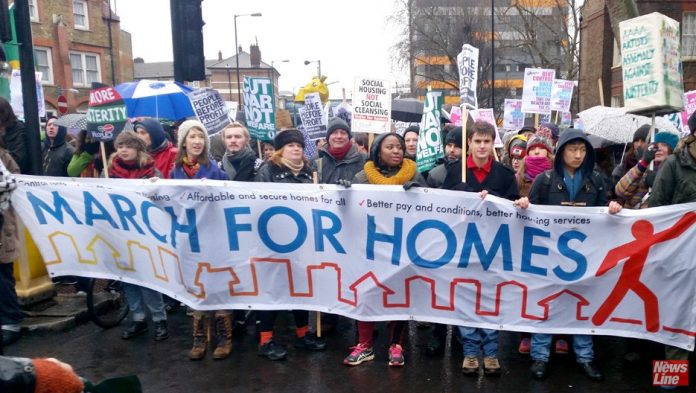THE NUMBER of visits to hospital accident and emergency departments by homeless people has more than trebled under Tory governments since 2011, the BMA (British Medical Association) reports.
Visits to A&E departments by patients classed as having no fixed abode have risen from 11,305 in 2011 to almost 32,000 last year. The BMA investigation reveals that some of society’s most vulnerable people are being failed by the system – with health and social care cuts driving the problem. To make matters worse, the homeless patients are presenting with increasingly complex physical and mental health conditions.
Hospital trusts with the largest increases in A&E attendances by homeless people since 2011 include:
- Kings College Hospital NHS Foundation Trust London – 1,563% increase. • South Tees Hospital NHS Foundation Trust – 1,125% increase. • Royal Devon and Exeter NHS Foundation Trust – 847% increase. • Stockport NHS Foundation Trust – 310% increase.
Transfers from emergency departments to wards have also rocketed – from 3,378 in 2011 to 9,282 in 2018. South-Central Ambulance Service, covering Oxfordshire, Buckinghamshire, Berkshire and Hampshire, has seen the number of cases relating to homeless patients rocket from 268, in 2015, to 1,834 in 2018, while South East Coast Ambulance Service reported an increase from 54 in 2014, to 339 in 2018.
More than a quarter of GPs said they had seen an increase in the number of homeless patients in the last five years. BMA public health medicine committee chair, Dr Peter English, said: ‘If this was some disease causing all these problems it would be a much higher priority but because victims can be blamed and stigmatised it is easy for government to ignore.
‘The growing numbers of rough sleepers and vulnerably housed people in our society is a continuing tragedy. ‘To stand by silently as our NHS faces increasing strain and our society becomes increasingly unequal would be unacceptable.’
As well as the evident physical toll, the BMA investigation explored the link between homelessness and mental health. BMA mental health policy lead, Dr Andrew Molodynski, said: ‘There is a considerable link between homelessness and mental health as sadly, homelessness can be both a cause and consequence of having poor mental health.
‘Without a home, it becomes even more difficult for people to seek treatment for their condition, many of whom have multiple and complex needs. They are ultimately sentenced to a life on the fringes of society without ever receiving the care they need.’
